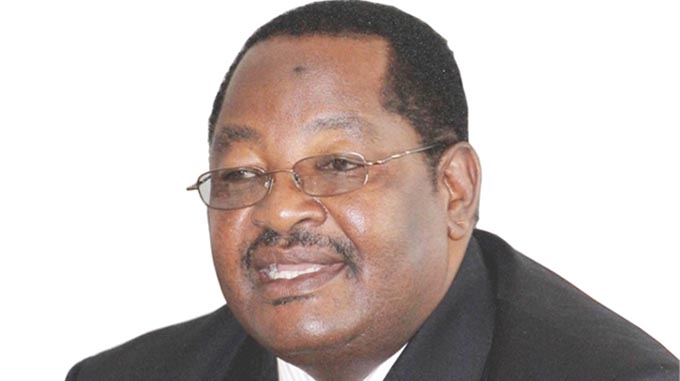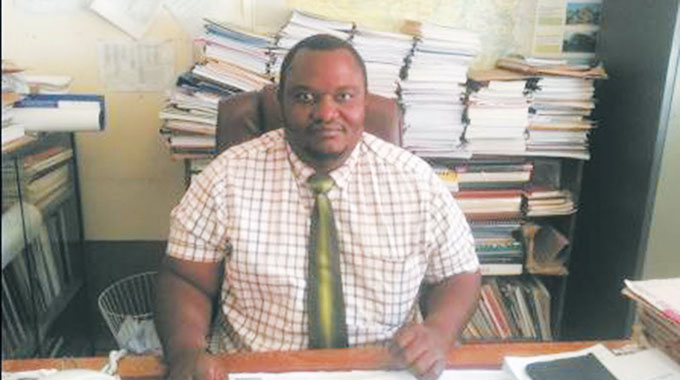Significance of marking Civil Registration Day

Tobaiwa T Mudede Correspondent
IN December 2017 in Nouakchott, Mauritania at the fourth conference of ministers responsible for civil registration, the African Union Commission made a landmark resolution by choosing thereafter August 10 of each year to mark Civil Registration Day in member countries.
This resolution was endorsed by the AU Executive Council during its 32nd Ordinary Session.
Zimbabwe is thus joining the rest of Africa in celebrating this special day.
Celebrating this day is significant in a number of ways.
It recognises the existence of every person being an African on the continent to be entitled to a name, a nationality and rights to enjoy all other benefits enshrined in the Bill of Rights.
Every person has a right to a dignified existence. Civil registration has nothing to do with racial discrimination brought about by colonialism or apartheid and all its evil and discriminatory facets.
Every person is human and equal before the law. We celebrate civil registration for providing the gateway to this legal recognition.
The civil registration process is in itself not in any way political or based on racism, religion, tribalism, regionalism nor is it engaged in any form of gender discrimination or segregation against mankind.
It is not about them and us. It is rather about human life, a creature of mankind. Civil registration provides protection to the child in cases of child trafficking and to the adult against human trafficking.
Nothing is as important as having an identity. It is like being found when lost and being brought home where one belongs. Civil registration is the only avenue which provides recognition to a person.
It is the recognition by the AU Commission through the established Committee of the African Registrars-General currently headed by the Registrar-General Mr Mudede of Zimbabwe, that there is indeed a strong need in Africa to ensure that all civil registration institutions take the lead to have every person in their country registered and becomes recognised. African governments are already mandated to empower civil registration authorities to carry out these tasks.
If applied properly, civil registration is about children, innocent as they are.
These should be registered early; entitled to a birth certificate and later in life to a national identity document and other events. Adults are people who should already have these documents on them.
It becomes queer for adults to be issued with birth certificates which they should have been ordinarily entitled to at birth.
Denying a child at birth of this recognition is denying the child the right to normal existence. We, therefore, celebrate this day the way people celebrate the birth of a child. Let civil registration give birth to visibility to human life. Lest people forget, those not registered at birth remain unknown, invisible and are officially not recognised by their countries and the world at large.
We, hereby call on countries to put in place mechanisms to register children early at birth. Civil registration authorities should provide convenient environments to register their communities, including those in the distant and difficult-to-reach areas.
Africa must learn from history and disassociate itself from the policies and practices of colonial governments which were notorious for ignoring the existence of the majority indigenous populations.
These majority indigenous populations were regarded as politically irrelevant and not worth of being part of the colonial states. They were regarded as non-existent and deemed not necessary to be all registered. Invisibility was thus created and passed on from those generations to forthcoming generations from the colonial times to independence and thereafter. Strong measures need to be taken to regularise these omissions or commissions of invisibility.
Civil registration provides an identity to individuals. It becomes mandatory for the states to provide security and other social benefits to those registered.
It provides rights to these affected persons to participate in the economic, political and social development of their countries. They also contribute to nation building. Recognition by a state eliminates what has come to be termed the scandal of invisibility. This is where people exist without any form of documents which provides for the recognition of their existence and status as bona fide citizens of a state.
Countries should take bold measures to eliminate these unregistered persons.
They have come to be where they are not because of their own making, but due to circumstances beyond them.
Some are a creation of unwarranted wars, historical prejudices and others a result of social and economic upheavals.
Notwithstanding whatever prejudices may be heaped on them, they are humans and deserve a life. Making the invisible visible is the mandate of civil registration authorities. It is the call for every child to be registered. Every child deserves to have a name and that name must be permanently engraved in the annals of civil registries.
The millennium development goals cannot be achieved without addressing these neglected populations. Development can only take place where the environment is well-mapped out and the populations known.
Economic planning for development cannot take place in a vacuum. African countries are now compelled to ensure their registration authorities provide clinically accurate statistical population data for economic planning and development.
No single person must, therefore, be left out in the registration process.
August 10 is a call to every parent to take full responsibility of their parenthood by registering their children.
The right of being a parent is the right to register a child. Not exercising this right is a violation of the fundamental rights of a child. All initial registrations for birth certificates and national identity documents are issued free of charge. It becomes a great cause for concern why some children would remain unregistered. Unfortunately children cannot register themselves.
Parents must set aside their personal differences and stop using children to fight their differences by not having them registered. Parents need to take note of the fact that nowadays crime is becoming more and more complicated. Having children registered early would mitigate against cases of child trafficking, child prostitution, human body parts transplants, child slavery, drug trafficking involving children etc.
These crimes also affect adults who are not spared from the same vices.
Where these activities take place and victims are rescued, their identification becomes a vehicle to rehabilitate, counsel and provide possible repatriation for them. It becomes the responsibility of each government to take care of its people and provide them with the necessary psycho-socio assistance.
Every parent is being called upon to be truthful when providing information on registering their children.
There are false registrations where relatives register children on behalf of their biological parents for reasons best known to them. Parents are being called upon to cooperate fully in the registration of their children.
Truthfulness is the recipe of a pure civil registration population data. Any false information provided about the child will be problematic in the future as the child grows up and want to have his/her actual parents on their documents for medical, insurance or other purposes.
The other challenge is delayed registrations when the law is very clear about early registrations. Every country is required to achieve a 100 percent registration status.
Tobaiwa T Mudede is the chairperson of the Committee of African Registrars-General.










Comments